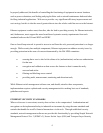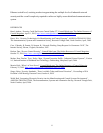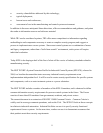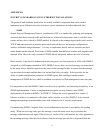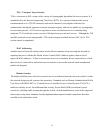As Ethernet has expanded into outlying industrial facilities, two types of network structures emerge:
Local and Remote. The Local Ethernet structure is within the walls of a single facility which can be
closely watched, with the only serious security risk being from disgruntled employees or persons who
have penetrated the physical security of the plant. Access to data running across this type of Local
Ethernet network can be protected by segregating it with VLANs (Virtual Local Area Networks).
VLANs can be configured to restrict points of access from the outside world and can employ password
protection to provide authorization, authentication, and access control tethered to the Ethernet network
itself. Telnet managed by the switch can be used for remote login to the switch manager software.
However, Ethernet’s benefits to industrial applications run far beyond such restricted local
applications. Much Ethernet connectivity is deployed beyond a single plant and local-only networks
would limit the ability to manage, monitor and collect data from remote operations. Ethernet, using
fiber cabling for distance, noise-immunity and security, is deployed throughout widely distributed
industrial applications. Interconnecting multiple water treatment plants or power substations within a
metropolitan area are typical examples
Remote industrial Ethernet implementations are very popular applications for monitoring (the Data
Acquisition (DA) part of SCADA). They are typically closed systems, which require in-facility access
points for information review, as opposed to casual Internet access from the home or from the remote
laptop of a maintenance supervisor. Within the closed system, remote monitoring may be possible,
eliminating many routine maintenance visits to unmanned outlying operations, with concomitant
reduction in costs. It is also easier to identify potential problems and dispatch maintenance or repair
teams promptly – often avoiding down time or managing outages.
The only security risk in a closed system is a physical breach of the network, and even in the case of
such an event, password protection goes a long way to providing data security. The downside is the
lost opportunity for efficiencies and savings because of the limits placed on management and control
of industrial operations from afar.
Management Supervision and Control – the SC part of SCADA - of remote sites over Ethernet has
traditionally been used less often simply because of concerns regarding security. If these concerns can
3







